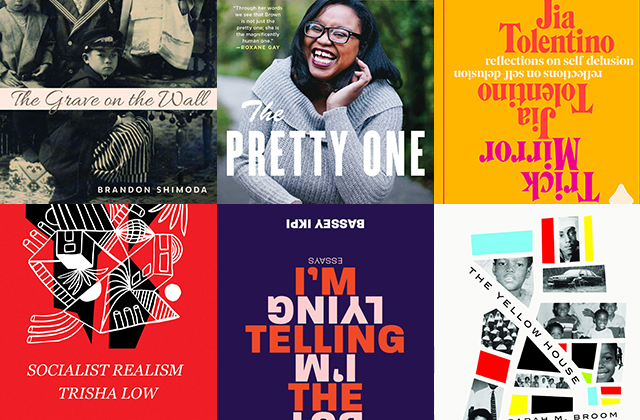The stories we tell to make sense of ourselves are sometimes blurred, fragmented and perhaps even invented. Identities, ever-shifting and transforming, are not fixed; they are shaped by innovation and self-discovery, often in the face of institutionalized racist oppression. To mark August, also the astrological month of Leo season, we present six books that explore our perceptions of ego and identity, through stories of home, mental health, colonialism, disability and pop culture.
{{image:2}}
“I’m Telling the Truth, But I’m Lying,” by Bassey Ikpi (Harper Perennial)
Mental health advocate Bassey Ikpi shares her experience with the extreme highs and lows of living with Bipolar II Disorder, from her childhood in Nigeria, to her youth in Oklahoma, to her 20s as a Def Poetry Jam performer. She begins her memoir by prefacing that parts of it may not be true, recounting her past through what she describes as a patchwork of feelings and sensations. As she searches through her memories, Ikpi questions the lies we construct to make sense of trauma, family secrets, mental health and, ultimately, ourselves.
{{image:3}}
“The Grave on the Wall,” by Brandon Shimoda (City Lights Publishers)
Poet Brandon Shimoda pays tribute to his grandfather’s life and illuminates the racism and imperialism that shaped the lives of many Japanese Americans during World War II. Shimoda outlines the mysteries behind the unspeakable violence that occurred, revealing its horrors through his grandfather’s FBI files, photographs and fragmented memories.
{{image:4}}
“The Pretty One,” by Keah Brown (Atria Books)
Keah Brown, activist and creator of the #DisabledAndCute campaign, discovers self-love as she navigates the world as a Black woman living with cerebral palsy. Her essays on romance, mental health and pop culture challenges our misperceptions about disability and encourages us to read experiences outside of a White and able-bodied dominant culture. “My hope is that you will understand that this collection is a journey of joy and acceptance,” Brown writes.
{{image:5}}
“Socialist Realism,” by Trisha Low (Coffee House Press)
This book-length lyrical essay and cultural critique finds poet Trisha Low in pursuit of a sense of belonging, moving between Singapore, New York and California. Low lists in non-chronological order her grandparents’ memories and her past relationships, as she attempts to reconcile her deepest desires and with her radical politics.
{{image:6}}
“Trick Mirror,” by Jia Tolentino (Random House)
New Yorker staff writer Jia Tolentino delves into the social currents that define us, from social media’s distortion of our identities, to the constant optimization of women’s bodies, to our increasing embrace of scams. She places her own personal experience within all nine of her essays, including a chapter on the rise of reality television, and appearing as a teenage contestant on the show, “Girls v. Boys: Puerto Rico.”
{{image:7}}
“The Yellow House,” by Sarah M. Broom (Grove Atlantic)
At the center of debut memoirist Sarah M. Broom’s book is her childhood home in New Orleans, Louisiana, a focal point that shapes multiple generations of her family history and the resounding effects of the city’s institutionalized racism, poverty and injustice. After Hurricane Katrina damages the house and uproots Broom’s family, she reckons with her connection to home.
